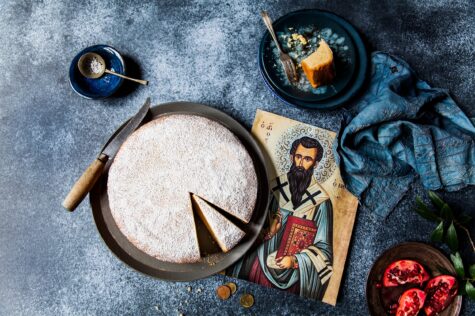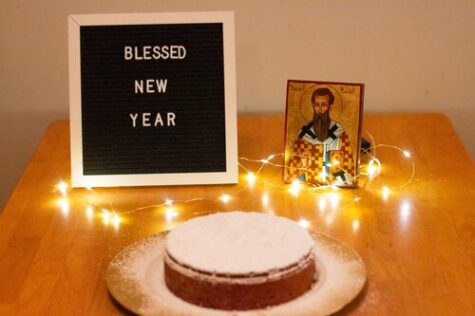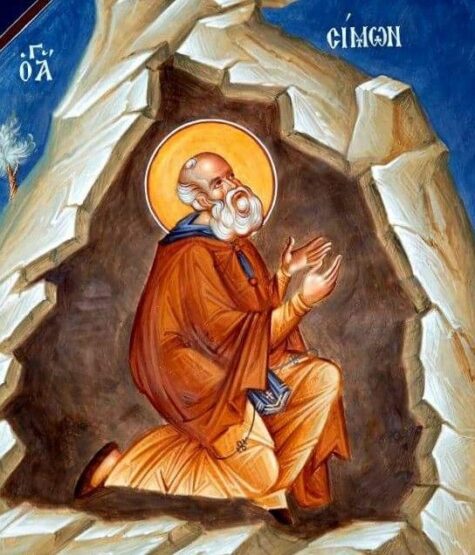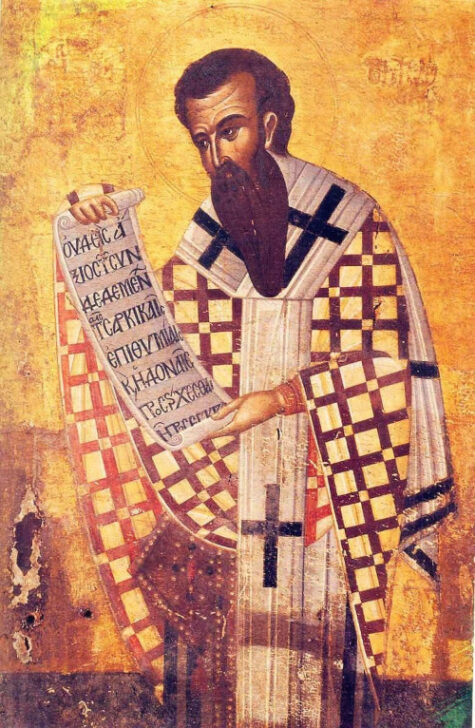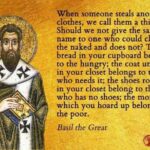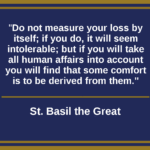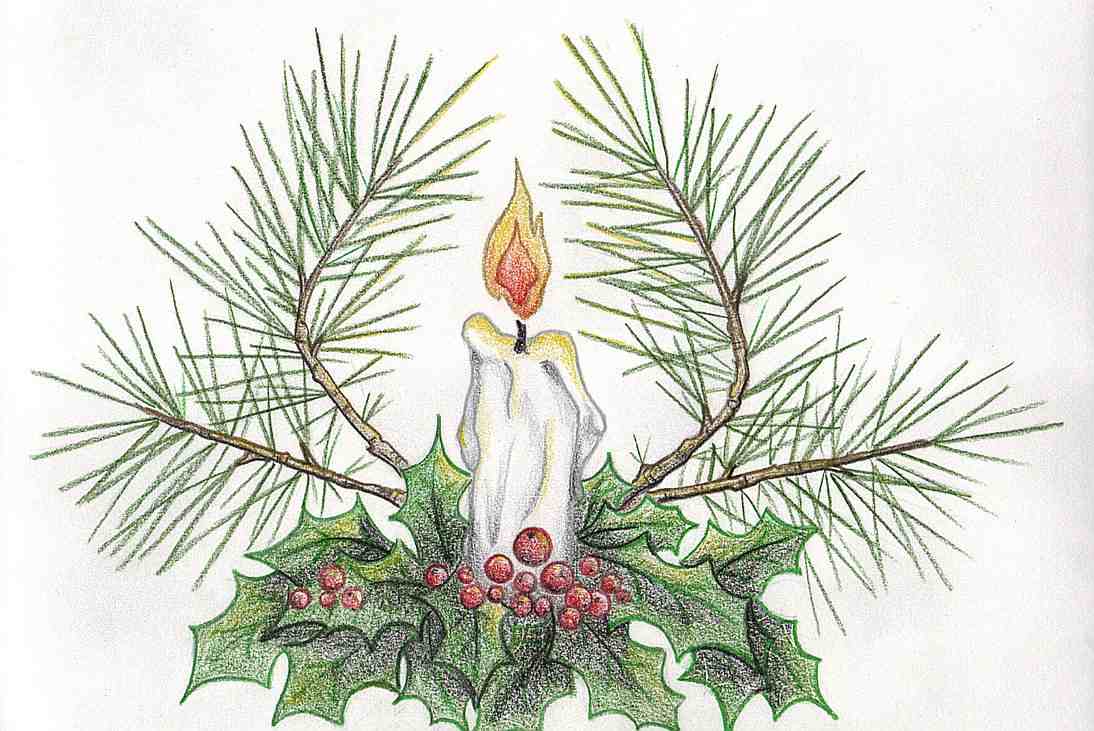Daily Archives: January 2, 2021
St. Basil’s Day, January 1st, commemorates the day in which (it’s believed) Basil of Caesarea died. The Festival of Saint Basil is the Greek New Year.
In Greek tradition, Basil brings gifts to children every January 1. Children leave their shoes by the fireplace in hopes that St. Basil will fill them with gifts. A large feast is prepared, the larger the luckier the year will be. Pork is usually the main dish. It is customary on his feast day to visit the homes of friends and relatives, to sing New Year’s carols, and to set an extra place at the table for Saint Basil.
Traditionally Vasilopita or Vaselopita, a special bread or cake, is baked on St. Basil’s Day Eve, and served at midnight. The cake is handed out in a particular order. The first piece is for the remembrance of St. Basil and the second is for the household. Those pieces are taken to the church to be blessed, then given to the poor. The rest of the slices are distributed from the eldest member of the household to the youngest.
A coin or trinket is hidden inside the cake, and the person who gets the piece with the hidden treasure will have luck in the coming year.
Vasilopita | St. Basil’s Bread
Make sure everyone knows a quarter is hidden in the cake so they search for it and do not choke on it.
- 1 cup butter, unsalted
- 2 cups granulated sugar
- 3 cups all-purpose flour
- 1/2 teaspoon cinnamon
- 1/2 teaspoon nutmeg
- 6 eggs
- 2 teaspoons baking powder
- 1/2 teaspoon baking soda
- 1 cup warm milk
- 1 tablespoon lemon juice
- zest of 1 orange
- zest of 1 lemon
- 1/4 cup blanched slivered almonds
- 2 tablespoons granulated sugar
- a clean quarter
Preheat oven to 350F. Generously grease a 10-inch round cake pan. Cream the butter and sugar together until light and fluffy. Stir in the flour, cinnamon, and nutmeg. Mix until mealy. Add the eggs one at a time, mixing well after each addition.
In a separate bowl, combine baking powder, baking soda, milk, lemon juice, and zests. Mix into the batter, then pour into prepared pan. Sprinkle with nuts and sugar. Bake 40-45 minutes. Gently push a quarter into the cake. Cool 10 minutes. Invert cake onto platter. Serve warm.
A Feast Day Prayer to Saint Basil
Saint Basil, O great follower of God, help all as well as me. Defender of orthodoxy, defend us too. Great follower of God, pray to him for all your people, as well as for unworthy me. Strong knight and leader of Ostrog, save us from the seen and unseen. Raised by Serbian soil to be the light in front of God, be our light and light up our road, and make the darkness disappear.
With prayer and tears you have warmed the cold cliffs of Ostrog, please warm our hearts with God’s spirit, so we can be saved. From all corners of the world to your grave come the weak and the ill, and you helped them, got rid of their demons as well as the devil, and healed their souls and bodies.
Please continue to help, the baptized and the nonbaptized, everybody and me as well. You brought peace to fighting brothers, please continue to bring peace, help the divided, make the sad happy, calm the stubborn, heal the sick. Saint Basil, O miracle worker, father of our spirit, listen and hear your children’s spirits in the name of Jesus Christ.
Amen.
About Saint Basil
Basil, being born into a wealthy family, gave away all his possessions to the poor, the underprivileged, those in need, and children. For Greeks and others in the Orthodox tradition, Basil is the saint associated with Santa Claus as opposed to the western tradition of St Nicholas
St. Basil, also called Saint Basil the Great, is one of the most distinguished Doctors of the Church and a forefather of the Greek Orthodox Church. St. Basil was born in the year 329 or 330 and died in the year 379. He is the Patron of Russia, Cappadocia, hospital administrators, reformers, monks, education, exorcism, and liturgists.
Basil’s life changed radically after he encountered Eustathius of Sebaste, a charismatic bishop and ascetic. Abandoning his legal and teaching career, Basil devoted his life to God. In a letter he described his spiritual awakening:
I had wasted much time on follies and spent nearly all of my youth in vain labors, and devotion to the teachings of a wisdom that God had made foolish. Suddenly, I awoke as out of a deep sleep. I beheld the wonderful light of the Gospel truth, and I recognized the nothingness of the wisdom of the princes of this world.
Hot-blooded and somewhat imperious, Basil was also generous and sympathetic. He personally organized a soup kitchen and distributed food to the poor during a famine following a drought. He gave away his personal family inheritance to benefit the poor of his diocese.
His letters show that he actively worked to reform thieves and prostitutes. They also show him encouraging his clergy not to be tempted by wealth or the comparatively easy life of a priest, and that he personally took care in selecting worthy candidates for holy orders. He also had the courage to criticize public officials who failed in their duty of administering justice. At the same time, he preached every morning and evening in his own church to large congregations.
In addition to all the above, he built a large complex just outside Caesarea, called the Basiliad, which included a poorhouse, hospice, and hospital, and was compared by Gregory of Nazianzus to the wonders of the world.
His three hundred letters reveal a rich and observant nature, which, despite the troubles of ill-health and ecclesiastical unrest, remained optimistic, tender and even playful. His principal efforts as a reformer were directed towards the improvement of the liturgy, and the reformation of the monastic institutions of the East.
There are numerous relics of Basil throughout the world. One of the most important is his head, which is preserved to this day at the monastery of the Great Lavra on Mount Athos in Greece. The mythical sword Durandal is said to contain some of Basil’s blood.
Some Great St Basil Quotes
I really love some of these quotes. They are surprisingly applicable to modern life. Enjoy!
Alternative St Basil Feast Days
According to some sources, Basil died on January 1, and the Eastern Orthodox Church celebrates his feast day together with that of the Feast of the Circumcision on that day. This was also the day on which the General Roman Calendar celebrated it at first; but in the 13th-century it was moved to June 14, a date believed to be that of his ordination as bishop, and it remained on that date until the 1969 revision of the calendar, which moved it to January 2 (rather than January 1) because the latter date is occupied by the Solemnity of Mary, Mother of God.
On January 2 Saint Basil is celebrated together with Saint Gregory Nazianzen. Some traditionalist Catholics continue to observe pre-1970 calendars.
The Lutheran Church–Missouri Synod commemorates Basil, along with Gregory of Nazianzus and Gregory of Nyssa on January 10.
The Church of England celebrates Saint Basil’s feast on January 2, but the Episcopal Church and the Anglican Church of Canada celebrate it on June 14.
In the Byzantine Rite, January 30 is the Synaxis of the Three Holy Hierarchs, in honor of Saint Basil, Saint Gregory the Theologian and Saint John Chrysostom.
The Coptic Orthodox Church of Alexandria celebrates the feast day of Saint Basil on the 6th of Tobi (6th of Terr on the Ethiopian calendar of the Ethiopian Orthodox Tewahedo Church). At present, this corresponds to January 14, January 15 during leap year.
Sources:
